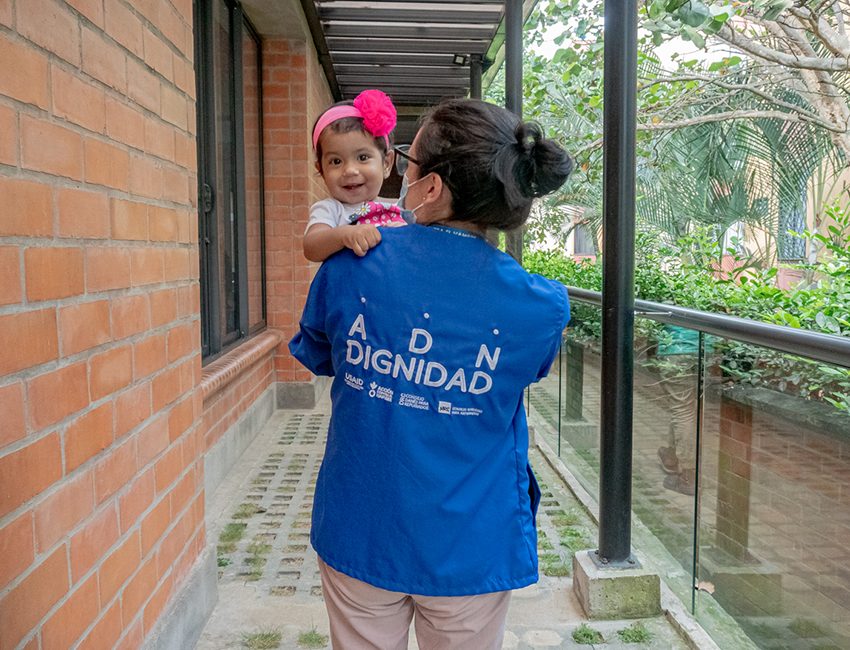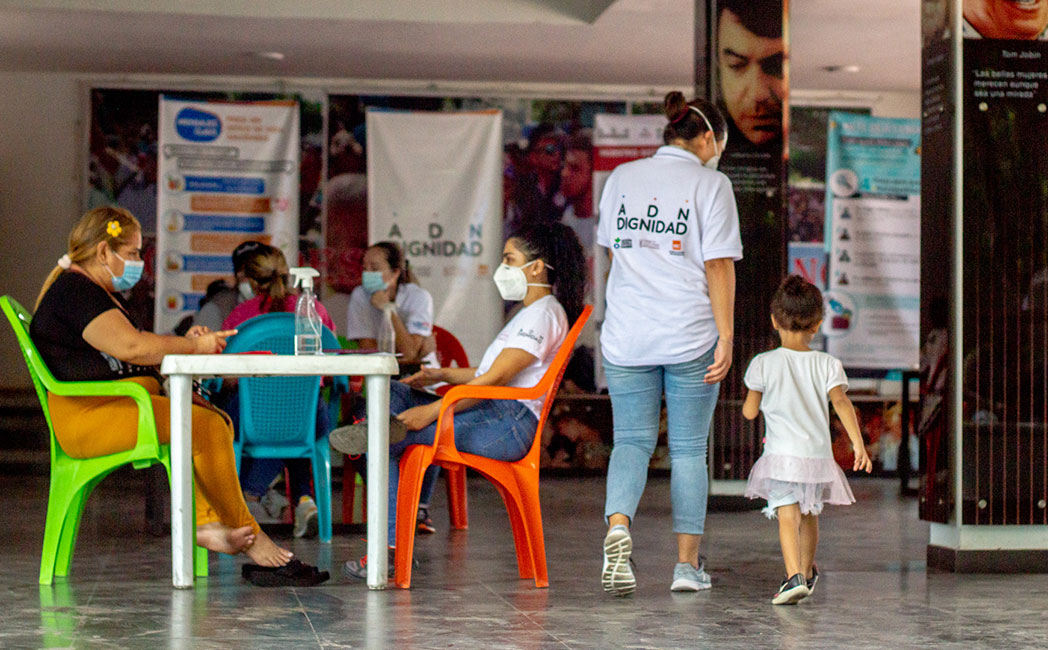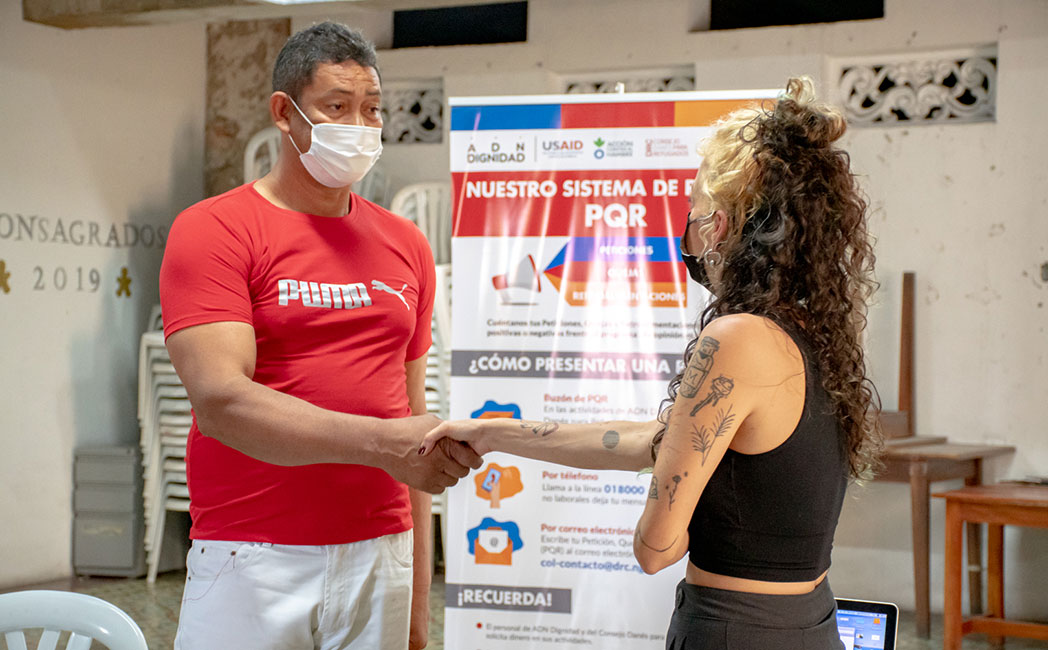Imagine having to leave everything behind because of fears for your safety. In the hope of a better life, you flee to your neighbouring country. But when you arrive, there are few job opportunities and you struggle to find food. You face discrimination and it’s difficult to integrate with society. Do you stay or make the hazardous journey north to the United States? This is the reality facing millions of Venezuelan migrants today.
UN agencies and the Panamanian authorities recently warned that up to 400,000 migrants could attempt to cross the Darién Gap – the highly dangerous jungle border crossing between Colombia and Panama – with the end goal of reaching the United States. It’s estimated that 36 people died attempting this crossing in 2022, although the actual figure is thought to be much higher as many go unreported and unrecovered.
That’s why organisations like Action Against Hunger are trying to discourage migrants from making this incredibly risky journey. And by providing migrants with cash, they’re more likely to stay and integrate into Colombian society.
Maria Clara is from the Wayúu community in Venezuela. She chose to bring her family to Colombia in search of an income but found it hard to get food after they arrived. Sadly, her 19-month-old daughter died after falling sick, while her son suffered from malnutrition.
After moving to a care facility run by the UN for Venezuelan refugees, Maria Clara began receiving support from ADN Dignidad – a programme led by Action Against Hunger in partnership with the Danish Refugee Council and Norwegian Refugee Council, with funding from USAID.
“Here in the shelter, they taught us about nutrition. I really didn’t know how to feed my children.”
The project has given cash to more than 256,000 people across Colombia – providing funds for basic essentials and helping people like Maria Clara to set up their own businesses to help fund their children’s education.
“Cash transfers save lives. The programme helps extremely vulnerable families. They arrive unprotected, so this money manages to solve the basic needs of people.”
What’s it like for Venezuelan migrants living in Colombia?
Over 2.5 million Venezuelan refugees have migrated to Colombia since 2015. And since settling in cities like Bogotá, many migrants have faced poverty and a lack of job opportunities and healthcare – along with the persistent risk of violence and exploitation.
These challenges have pushed many to attempt to cross the Darién Gap – a dangerous 160-mile trek through a harsh wilderness of rainforests and mountain terrain. According to Colombian officials, those who take on the journey risk being victim to fraud, extortion and sexual abuse from criminal gangs who operate in the area.
Despite this, there’s been a significant spike in migration numbers – with 250,000 migrants crossing the Darién Gap between January and July 2023. This is more than the total number of migrants who attempted the crossing in the whole of 2022.
How do cash transfers help?
ADN Dignidad is one of the largest humanitarian programmes in Colombia, with families receiving around £80 every month for six months. The project also helps people find jobs and set up businesses. This reduces the need for families to try to leave Colombia and make the dangerous journey across the Darién Gap.
Freyderman made the difficult decision to leave Venezuela after his mother was killed.
“I was able to greatly alleviate stress and depression. We were able to seek help with basic expenses. There are so many doors that have opened for me in this country. I am thankful for being able to help my family.”
Families who’ve received emergency cash transfer now have higher levels of life satisfaction, a more stable income and can get the food they need.
In three cities across Colombia – Bogotá, Barranquilla, and Nariño – over 3,000 families spent 62% of the money they received on food, 24% on housing and 12% on other basic essentials.
“When I received the help of ADN Dignidad, I can honestly tell that I needed that little push. It helped me for most of the Covid-19 quarantine, for money, for rent and food. I got to move from a room to a small house.
“Everything has improved. I’m integrating with more people, people who love me. These are beautiful things that life can give you and I have lived them here.”




